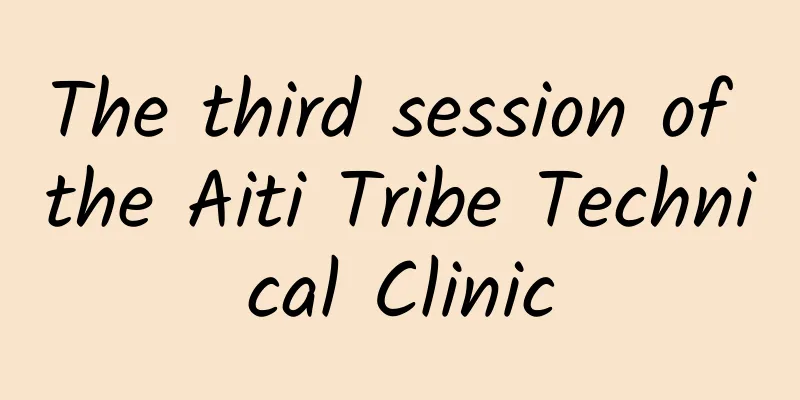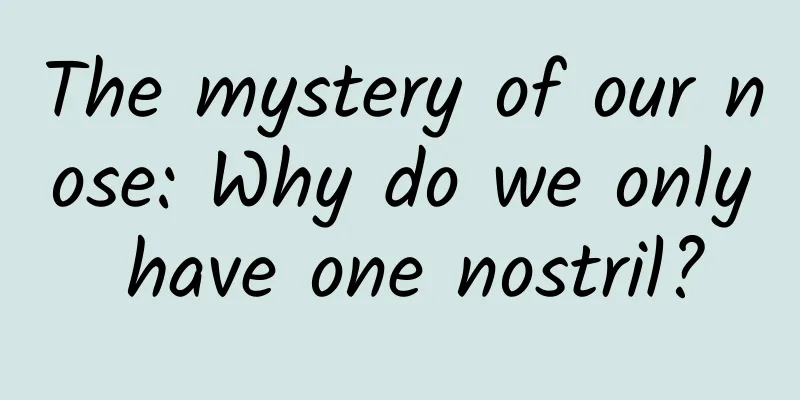“Stories of Delisting” in the Mobile Internet Era

|
New Year's Day is approaching, and at the turn of the year, the "summary" of various industries is on the agenda again. The marketing teams of various brands are stepping up the production of H5 to tell users how many times they took taxis and ordered takeout in 2019. Even Weibo users who love to quarrel have begun to summarize the number of people they have scolded this year. But looking back at 2019, we can find that this year can be called the "delisting year" of the Internet. Not only have industry-leading apps with huge user base been delisted since the beginning of the year, but recently the National Cyber Security Notification Center issued a notice to remove and rectify 100 illegal and non-compliant apps. These include products of banking institutions such as Tianjin Bank and Everbright Bank, as well as content products such as Fan Deng Reading and Jinjiang Novel Reading, and e-commerce products such as Koala Overseas Shopping. For developers, their annual summary may be: In recent years, X products you have participated in developing have been removed from the shelves, and the cumulative time of removal from the shelves has reached XX days. In order to deal with the removal issues, you have attended X emergency meetings... The history of mobile Internet regulation: Why are apps removed from the shelves? Looking back to the wild growth of the App ecosystem around 2015, unless there were legal issues involved, "delisting" was often decided by the App Store. Especially for the particularly "abusive" App Store, there would often be "intrigues" with operators over rankings and other issues. At that time, if an App was delisted, it was often because the developer took advantage of loopholes or violated some rules during the ASO process, and was punished by the App Store for delisting. After relisting, the ranking, weight and even rating would often be cleared. Of course, as time goes by, the App Store has also put forward relevant requirements for "applicable to iOS 11", "hot updates", "GDPR standards", etc., but in general, the removal of apps from the App Store will not cause too much negative impact. The real impact is the App rectification led by regulatory departments such as the Cyberspace Administration of China and the Ministry of Industry and Information Technology.
The history of app removal can also be seen as the “history of standardization” of mobile Internet. Relevant departments have gradually refined the regulations on mobile Internet. At the beginning, they paid close attention to the entire category. For example, around 2016, the largest number of products removed from the shelves were gambling-related sports lottery products. Then, they gradually increased their attention to content compliance. For example, since 2017, they have paid close attention to live broadcast and information distribution products. Even products with extremely high national popularity, such as Toutiao and Xiaohongshu, and phenomenal products such as Neihan Duanzi, have been "hit". The reason for the recent large-scale removal is that the Ministry of Public Security has stepped up its efforts to crack down on crimes that infringe on citizens' personal information and organized a centralized rectification campaign against apps that illegally collect personal information. Most of the products removed from the shelves were due to the lack of detailed privacy agreements or the excessive or illegal collection of user information. It can be seen that the regulatory actions of the mobile Internet have moved from categories to content and then to data privacy. Development comes first, and regulation comes later. This seems to be a common phenomenon in the business world. When the mobile Internet reaches its peak and begins to be combined with AI technologies such as voice recognition and face recognition in the future, the gradual improvement of supervision is a natural phenomenon. For developers, it is of course best to be able to self-check and correct themselves to reduce the possibility of violating regulatory red lines, but what we want to discuss today is what impact will delisting have on products and even brands? Scolded, abandoned, and copied: the stories of app delisting in 2019 In our previous understanding, the most serious consequence of App delisting is that the number of users will not continue to grow for a period of time. In more serious cases, it may affect search weight, keyword ranking, etc. However, judging from the cases in the past two years, "delisting" often becomes the butterfly's wings, setting off a series of problems. Therein lies the external PR problem. In February this year, not long after the listing plan was revealed, Hupu, a well-known "gathering place for straight men", was removed from the shelves. The official reason for the removal was "internal problems". Such a statement obviously could not quell speculation. In addition, Hupu has always been at odds with the "fan circle". Soon, Hupu's removal from the shelves was on the hot search. A large number of fans of different artists controlled the comments in the hot search. The public opinion quickly changed from "internal problems removed from the shelves" to "was it Yang Chaoyue's fans or Wang Yuan's fans who made Hupu removed from the shelves". Fans concentrated on attacking that the atmosphere of the Hupu community was too "straight male" and extremely unfriendly, which once again made the tone of Hupu users and even the profitability of the entire product widely discussed and doubted. For Hupu, which has not yet entered the capital market, the public relations issue is just talk. For listed companies, the results will be directly reflected in the performance of the capital market, just like Momo's social product Tantan was removed from the shelves, and Momo's stock price fell by 10%. If the public opinion caused by the removal of the product has the greatest impact on the stock price, the internal content ecology problems have already truly affected the commercial value of the product. The most watched delisting incident this year came from Xiaohongshu. The reasons for the delisting were also complicated. Some said it was because of a large amount of content showing off wealth with inappropriate values, others said the e-cigarette advertisements released by KOLs involved violations, and there were even claims that there were many "secret prostitutes" hidden among the internet celebrities on Xiaohongshu.
In fact, for Xiaohongshu, a product with 250 million users, even if it is temporarily removed from the shelves, the number of existing users can ensure the smooth operation of the content ecology. But the fact is that during the removal period, the originally popular KOL advertising business was hit hard. Not only did advertisers reduce their budgets, but the "amateur model" that was unique to Xiaohongshu in the past (widely advertising to bloggers with only a few thousand or a few hundred fans) has almost disappeared. A person who used to work in Xiaohongshu KOL advertising sales told us that he was originally responsible for the sales of this kind of "amateur advertising". At the peak of business from the end of 2018 to the beginning of 2019, advertisers often placed advertisements to more than a thousand amateur bloggers a day. However, after the removal incident, advertisers not only had a risk-averse mentality, but also doubted the authenticity of the traffic. Some amateur bloggers found that they had no income, and gradually reduced content updates, and this industry chain also slowly slumped. Although excessive commercialization is not conducive to the development of content communities, appropriate commercialization opportunities must be the lubricant of the content ecology. The impact of delisting on business will eventually be transformed into an impact on user activity. According to QuestMobile data, as of the end of September this year, Xiaohongshu had 72.88 million monthly active users, a significant decrease from 93 million in June. If the public relations crisis and the impact on commercial value are still individual cases caused by product attributes, then the next problem is what every product that is taken off the shelves may encounter - counterfeit products. In most cases, when a product is removed from the App Store, the App Store will no longer be able to protect the product through column recommendations, rankings, etc. At this time, counterfeit apps will frequently appear to gain traffic through similar names and VI designs. Xiaohongshu, Tiantian Werewolf, and other products have encountered similar situations. The most tragic case is the completely shut down "Neihan Duanzi". As this product seems to never be restored, copycat products are rampant. Not only do they use similar names and icons, but there are even products named Pipi Xiaoxiao using the icon of Neihan Duanzi, and even the reincarnation of Neihan Duanzi's smurfs are not spared. Enthusiastic netizens had to go to the comment section to guide them, saying that Pipi Xia is the real Neihan Duanzi 2.0. Besides building buffer zones, what else can we do? From these bizarre "delisting stories", we can easily find that seemingly insignificant situations such as "cannot be downloaded for a period of time" are actually very important. This is especially true for products that are in the growth stage and have complex internal ecosystems. It is regrettable that after four or five years of running, many products can see traces of original sin when they look back. This includes data collection rules related to technical implementation, as well as content values, user tone, user behavior and other elements that are difficult to give a black-and-white assessment. Especially for social and content products, supervision and the slightest consequences of this supervision are always the sword of Damocles hanging over their heads. Of course, we can also find some positive cases to see how some products have safely survived the delisting storm: for example, Future Market, an e-commerce product rumored to be among the 100 apps, clarified immediately after the news broke that the App had not been delisted, and had made immediate rectifications after receiving the notice; another example was NetEase Cloud Music, which simply carried out a large-scale update at the time of delisting, and after being put back on the shelves, it used new features such as Cloud Village and live broadcast to support new traffic entrances. For products like these, after being removed from the shelves, they can make clear and timely public relations responses, and add new features or announce new policies when they are relisted, which can effectively dilute the negative effects of being removed from the shelves. However, all of this can only barely play a buffering role. As for other uncertainties of App removal, it is even more difficult for us to solve them. In the next period of time, the story of delisting will obviously continue. The best solution may be to avoid becoming the protagonist. |
<<: The year of social networking: Is WeChat’s status unbreakable?
>>: Analyst: 5G iPhone sales next year may disappoint investors due to network coverage
Recommend
This little bug's "kiss" may have troubled Darwin throughout his life...
In 1835, the 26-year-old Darwin followed the wars...
Get APP competitive product analysis
The overall feeling that Get gives me is that it ...
3 factors that influence high conversion rates of products (Part 1)
All website operation work has only one purpose -...
What is the result of the Russian "troll army" spending $100,000 on Facebook advertising?
On September 20, local time, Facebook Chief Secur...
From PPT to offline, new car-making forces have become a bottomless pit for funds. How long can Internet car-making last?
Recently, it was reported that NIO has submitted ...
Seabirds are suffering from chronic diseases from eating plastic! But they think they are eating seafood...
Seabirds have become sick from eating plastic, an...
Online employment class for video packaging and editing!
Online employment class for video packaging and e...
The ultimate state of lying flat: eating once a year and taking a shit once a year
I often see people joking online that deep-sea cr...
How to correctly place information flow ads?
Information flow advertising is now the new favor...
Mobile terminal routing layer design
What is the mobile routing layer? The concept of ...
In just a few steps, you can understand how Jianshu has attracted millions of users
Jianshu 's positioning was very clear when it...
Alipay users, please note that if you encounter fraud during transfer, you can report to the police to recover the money!
China News Service, Economic Network Client, Augu...
Complete record of the strong typhoon "Sura", how did "Guanhai No. 1" do it
On September 2, 2023, Typhoon No. 9 "Sura&qu...
Sina Fuyi advertising display and billing model!
We know that there is a huge difference between S...









